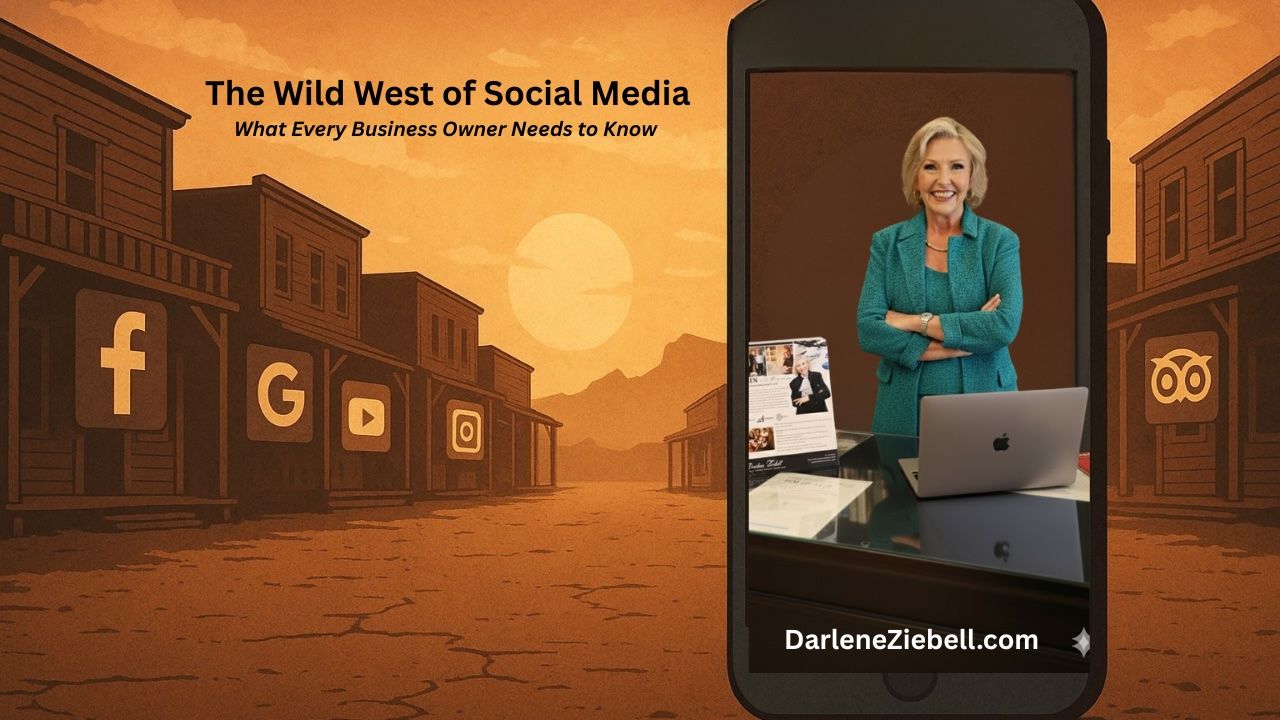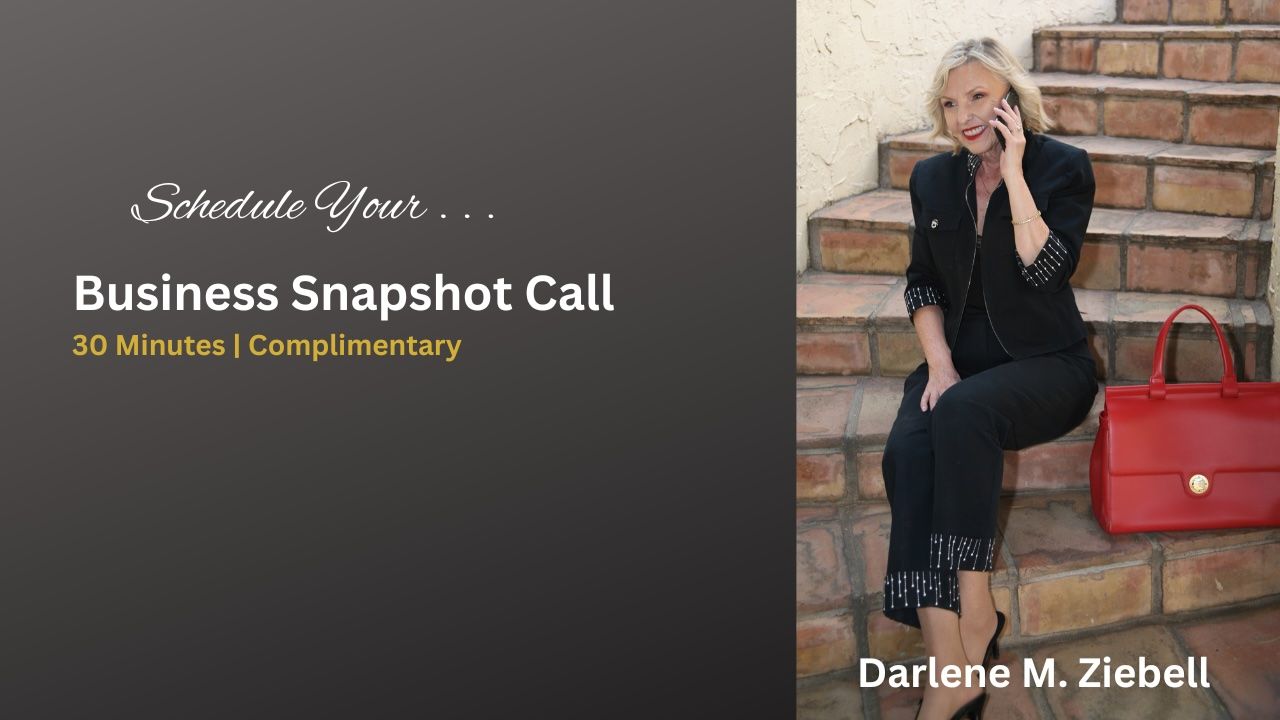The Wild West of Social Media: What Every Business Owner Needs to Know
Nov 24, 2025
The Wild West of Social Media: What Every Business Owner Needs to Know
“This has to stop! The online complaints are running wild.” These were the shouts I heard in my office by my vice president of sales.
Before I could reply, he was already on his phone researching firms specializing in internet law. At that time, there weren’t many attorneys working in this new field. By late 2015, my travel agency was fighting an onslaught of online reviews and comments on XXXXXXXX—posted by people whose names didn’t appear anywhere in our customer database.
“None of these names are customers or leads in our system,” I told him.
Some reviews came from someone using a comic-book character name with a UK address. Based on how many reviews this same person had posted across the platform, they’d have to take 10 to 12 vacations per day to know everything they claimed to know. And since we didn’t sell to the United Kingdom, their sudden expertise on my company made no sense.
Through extensive research, I retained a legal team. A firm experienced in online defamation and extortion—had deep knowledge of cross-state and cross-country internet law. I needed it.
There are countless books and courses promising to help entrepreneurs build strong online marketing campaigns. But as Entrepreneur magazine writer Jason Daley once said, “bad information is the bread and butter of the internet.”¹ So how does a small business use social media effectively—and how do you defend yourself when false information hits your company?
I’ve owned businesses before the digital age and through it. Social media is still the Wild West. Before platforms existed, an unhappy customer had to write a letter to the editor and hope the publication printed it. Today, people post anything they want without thinking about consequences. And negative news always travels faster.
Most social sites allow users to post fake reviews with made-up names. They don’t verify identities or confirm whether the reviewer ever purchased from you. As an owner, you must be ready for online statements—true or false—posted by customers or complete strangers.
Another problem: happy customers don’t always bother to leave reviews. And some platforms now limit how many positive reviews a user can post. XXXXXXXX, for example, restricts reviewers who try to post only positive comments. To continue reviewing, XXXXXXXX pushes users to leave negative feedback.
My attorney once told me, “I tried leaving only positive reviews for my favorite companies—XXXXXXXX wouldn’t let me. I had to write some negative ones.”
That restriction is likely the simplest coding solution to stop business owners from posting fake positive reviews under different names.
One company I advise gets more reviews by offering gift cards. At my travel agency, my customer care team constantly asked customers to write reviews. Many clients verbally expressed their appreciation, but few ever posted online. To help, I installed a dedicated phone line where customers could speak their review, which was then recorded and published on our website. It made the process easy—no logging into platforms or typing.
Our home page highlighted these as “Real Customers,” unlike the random posts on travel review sites using unverified identities.
This online chaos can make or break a business. Per the Reporters Committee, libel occurs when a false statement about an identifiable person is published and harms their reputation.²
In 2017, a wedding photographer won a lawsuit after a couple tried to ruin her business over a $125 album charge.³ They went to social media claiming they were seeking “justice” and hoped their comments “went viral.” The jury awarded the photographer $1,000,000.
Defamation is the act of making false statements that harm a business or person. Extortion is the act of demanding money or property through threats—including threats to reputation. When interstate commerce is involved, it becomes a federal crime.⁴ And most online transactions fall under interstate commerce.
One of the earliest attacks on my travel agency came from an online site called XXXXXXXX. Someone categorized us under a category called: “Bargain Travel Forums.” That wasn’t our business model and never appeared in our marketing. Still, this false impression encouraged customers to start price-shopping after they booked — resulting in hundreds of thousands lost in credit card disputes.
Then there was a customer who attempted to destroy my personal reputation and the reputation of my company. This customer had been accidentally overcharged $84. We immediately refunded her. But she took to social media to imply I didn’t know how to run a business or advise other business owners.
What they didn’t mention was that both had already filed credit card disputes, and my processor had already withdrawn funds from our account—yet they continued claiming online they were “overcharged, and still wanted another refund.”
My attorneys tried to have the reviews removed and requested user information from the platforms so we could take legal action. Social platforms refused, protected by FCC law code 230, which shields them from liability as “neutral public forums.”⁵ Only the individuals posting are responsible.
When we could identify the person, my lawyers issued cease-and-desist letters. Those individuals removed their posts, and I chose not to file suit. But the damage was done. For those we couldn’t identify, their posts remain online today.
Thomas Friedman wrote in Thank You for Being Late that technology cycles every five to seven years, while laws take 10 to 15 years to catch up.⁶ That gap leaves small business owners exposed. My attorneys suggested adding defamation and extortion language to our terms and conditions and enforcing strict internal policies against fake reviews. It won’t stop outsiders, but it helps discourage unhappy customers from inciting online mobs.
Social media is an easy weapon for competitors. In 2016, social media advertising budgets hit $31 billion.⁷ Global spending is projected to hit $276.7 billion by 2025.⁸ It’s here to stay.
When my company launched additional brands, a friend tested the social media site called XXXXXXXX by posting a positive review. Within minutes, new negative reviews appeared—again from people we had never heard of in regions we didn’t serve. We had one customer: my friend. Yet multiple strangers somehow “reviewed” us.
I had to ask:
“Is this site rewarding high-volume reviewers?”
“Are competitors attacking us?”
On another travel site, one of our happiest customers left a glowing review. Within minutes, others accused her of being fake and argued with her for many posts.
Even the popular site called XXXXXXXX was a battleground. Someone created a page with my company name asking for complaints. When my attorneys asked XXXXXXXX to remove it, they said only the creator of the page could take it down.
After years of legal attempts, it became clear: their lawyers were bigger than mine.
In 2022, Gov. Doug Ducey signed SB 1001 to protect small businesses from fake reviews and online blackmail.⁹ Noncustomers posting harmful, false reviews can now face a class 4 felony and up to three years in prison per offense.
It helps, but it still doesn’t solve the biggest problem:
“How do we identify the real names behind fake accounts?”
The documentary The Creepy Line highlights how social platforms influence society and deny harming small businesses.¹⁰ In October 2025, X (formerly Twitter) launched a transparency policy showing account creation dates, location, name changes, and usage patterns to help identify bots and fake accounts.
Key Takeaways for Business Owners
- Be prepared to defend your business from online defamation. Know your state laws and hire an experienced attorney familiar with multi-state and international online issues.
- Many states have a statute of limitations as short as six months to file a claim. After that, the damage is permanent.
- Keep an eye on your competitors. Are they creating phony accounts to leave negative reviews about your business?
- With platforms protected by law and unwilling to verify reviewers or release identities, small businesses must be prepared for the unfortunate reality: you can become an innocent target overnight.
Written by Darlene M. Ziebell
Endnotes
- Jason Daley, Entrepreneur Magazine
- Reporters Committee for Freedom of the Press – Definition of Libel
- Wedding Photographer Defamation Case, 2017
- Interstate Commerce and Extortion Law
- FCC Law Code 230
- Thomas Friedman, Thank You for Being Late
- Hootsuite Blog – Social Media Advertising Budgets, 2016
- U.S. Social Media Ad Spend Projections for 2020
- SB 1001 – Arizona Legislation, 2022
- The Creepy Line Documentary
Announcing The 1% Edge
If you like this blog article, check out my newsletter The 1% Edge. Designed to help business owners who want to thrive and reach their next 7 figures in business.


